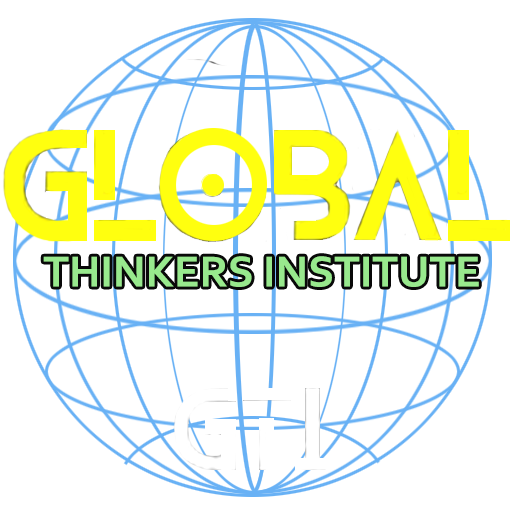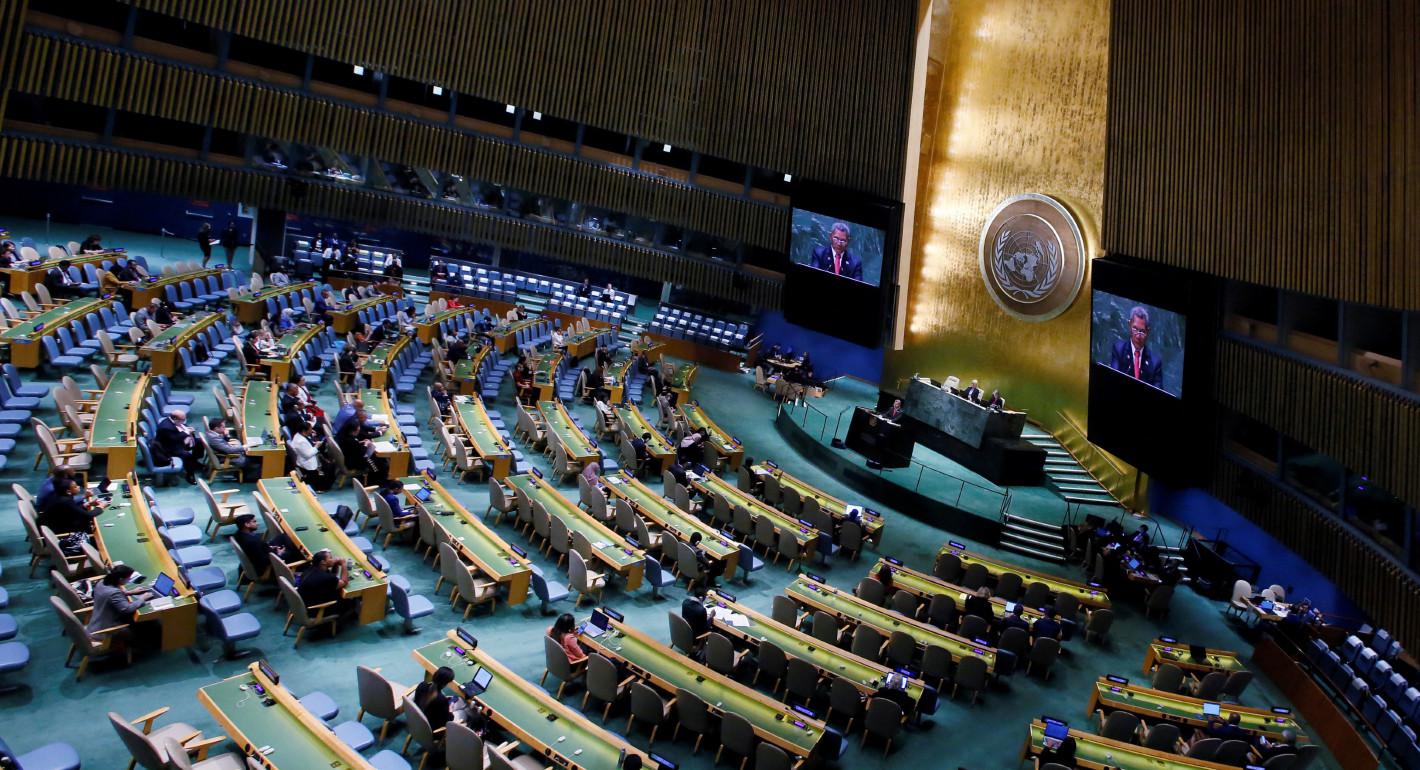MUHAMMAD MA'RUF, Ph.D
Director Global Thinkers Institute (GTI), Observer, Researcher on Geo-Philosophy, Geostrategy, Intelligence and Defense.
GTI-The next world order is The United Nations (UN). This international organization was founded in 1945. Consists of 193 countries. The members of the UN and its work are guided by the goals and principles contained in its founding Charter.
As World War II came to an end in 1945, countries were in ruins, and the world wanted peace. Representatives from 50 countries gathered to discuss the International Organization in San Francisco, California from April 25 to June 26, 1945. Over the next two months, they began drafting and then signing the UN Charter, which later created the new international organization, the United Nations, which was expected can prevent another world war like the one they just experienced.
Four months after the San Francisco Conference ended, the United Nations was officially founded, on October 24, 1945, after its Charter was ratified by China, France, the Soviet Union, Britain, the United States, and other countries.
Today, almost 78 years later, the UN still works to maintain international peace and security, provide humanitarian assistance to those in need, protect human rights, and enforce international law.
At the same time, the UN was undertaking new work that its founders had not planned in 1945. The United Nations has set sustainable development goals for 2030, to achieve a better and more sustainable future for us all. UN Member States have also agreed to climate action to limit global warming. With the many achievements that have been achieved in the past, the UN looks to the future, towards new achievements.
That is the official narrative and history of the UN. Is this really so and no effort is needed to evaluate it. Of course, as a product of history, the UN is recorded as carrying out peace missions as it should, and of course the UN tends to be helpless by superior powers which often carry out unilateral missions. Thus the history of the UN is in motion and continues to be written.
UN Evaluation
The 78th UN session opened amid a deepening crisis. The UN Secretary General said that “the world is becoming unhinged”. President of “The United Nations General Assembly” (UNGA)- Dennis Francis of Trinidad and Tobago mentioned the problems of “War, Climate Change, Debt, Energy and Food Crisis, Poverty and Hunger.” He said that ‘these crises have a direct impact on the lives and well-being of billions of people around the world. He added, we do not lack capacity. What we lack is the will to act.
The establishment of the UN itself cannot be separated from the world order created by the winners of the Second World War. The UN was formed in the final phase of the Second World War as the basis for the post-war order. The world has changed. The current threat was almost insurmountable at that time. Climate change was put on the world body's agenda half a century later at the Earth Conference in 1992.
Development and debt are issues voiced by Southern countries. Most of the countries in this group were still colonies when the UN Charter was signed in San Francisco in 1945. India, although still not independent, was among the 51 countries that signed the Charter. Since then, this country has emerged as a country with a large economy. Germany and Japan were defeated powers after the war. They, along with India, are now permanent members of the UN Security Council. However, the structure of the world body remains largely unchanged.
The United Nations and the World Economic System
The main pillars of global governance created at the end of the Second World War were the UN and the Bretton Woods system, which included the International Monetary Fund (IMF) and The World Bank. Covers the fields of politics and finance. A little later, “The General Agreement on Tariffs and Trade”-GATT (General Agreement on Trade and Tariffs) was added to this trinity covering international trade. Later replaced by the WTO.
The Bretton Woods Agreement was negotiated in July 1944 by delegates from 44 countries at the United Nations Monetary and Financial Conference held at Bretton Woods. Bretton Woods itself is an area in the city of Carroll, New Hampshire, United States.
Under the Bretton Woods System, gold became the basis of the US dollar and other currencies were pegged to the value of the US dollar. The Bretton Woods system effectively ended in the early 1970s when President Richard M. Nixon announced that the US would no longer exchange gold for US currency.
Some 730 delegates representing 44 countries met at Bretton Woods in July 1944 with the primary goals of creating an efficient foreign exchange system, preventing competitive currency devaluations, and encouraging international economic growth. The Bretton Woods Agreement and System were central to this goal. The Bretton Woods Agreement also created two important organizations-the International Monetary Fund (IMF) and the World Bank. Although the Bretton Woods System was dismantled in the 1970s, the IMF and World Bank remained strong pillars of international currency exchange.
Although the Bretton Woods conference itself took place in just three weeks, preparations had been underway for several years. The main designers of the Bretton Woods System were the famous British economist John Maynard Keynes and the Chief American International Economist at the US Treasury Harry Dexter White. Keynes' hope was to establish a powerful global central bank called the Clearing Union and issue a new international reserve currency called the Bancor. Harry Dexter White's plan envisioned simpler loan funds and a greater role for the US dollar, rather than the creation of a new currency. In the end, the plan adopted took ideas from both, leaning more towards Harry Dexter White.
The definition of Bancor itself is a supranational currency conceptualized by John Maynard Keynes and E. F. Schumacher in 1940–1942, proposed by Britain to be introduced after World War II. The name Bancor is inspired by the French banque or (gold bank). This newly created supranational currency will then be used in international trade as a unit of account in the multilateral clearing system - the "International Clearing Union".
It was not until 1958 that the Bretton Woods System became fully functional. Once implemented, the provisions require the US dollar to be pegged to the value of gold. Additionally, all other currencies in the system were then pegged to the value of the US dollar. The exchange rate in place at the time set the price of gold at $35 per ounce.
Security Council and World Security System
Next we discuss the United Nations Security Council. This institution is one of the six principal organs of the United Nations and is tasked with ensuring international peace and security, recommending the admission of new UN members to the General Assembly, and approving any changes to the UN Charter. The Security Council has 15 Members, and each Member has one vote.
The UN Charter (UN Charter) assigns the main responsibility for maintaining international peace and security to the Security Council. Within the Council, the “permanent members” accord themselves a privileged position. Not only do they not have to undergo periodic elections by the General Assembly, but they also have veto rights. The veto power extends to Charter amendments that require consensus among permanent members. This is to guarantee their privileges forever. The UN Charter is the basic agreement of the United Nations. An intergovernmental organization, multilateral treaty and constituent instrument of the United Nations.
The UN Charter was amended once in 1965. However, the amendment only expanded the category of non-permanent members. This does not touch the permanent member category. Discussions regarding the restructuring of the UN Security Council resumed after the end of the Cold War in 1992.
Problems surfaced, new centers of power emerged. Germany, Japan, India and Brazil are claimants to the permanent member category. Africa's position is based on the Ezulwini consensus. The so-called Ezulwini Consensus is an African Union voting resolution calling for a more representative and democratic Security Council membership. Africa, like all other regions of the world, should have representation. UN reform is certainly needed more than ever. China and a group of other countries, however, prefer rotating membership. It seems that the status quo suits China.
Conclusion
The UN as a form of global governance, which previously intended to make the interactions of its members multipolar, has in fact become unipolar and unilateral in the hands of the USA and NATO.
The UN was a product of the chaotic challenges of the second world war and the victors of the war. Granting veto rights to certain countries is based on strength factors, not elections. So the status quo position of countries holding veto rights or "The Big Five" holding UN veto rights; The United States, Russia, China, France, and Great Britain became the determinants of the definition and actions of peace and war throughout the world.
If this is maintained, fellow members who hold veto rights will continue to be prone to conflict, due to the competition for economic hegemony that was previously established by the USA bloc through the Bretton Woods system. Russia and China are not part of the system manufacturers. As a result, world security and economic problems become connected and complicated. The tension of the definition of military invasion, de-dollarization, BRIC versus IMF, World Bank is becoming increasingly apparent.
If this is maintained, fellow members who hold veto rights will continue to be prone to conflict, due to the competition for economic hegemony that was previously established by the USA bloc through the Bretton Woods system. Russia and China are not part of the system manufacturers. As a result, world security and economic problems become connected and complicated. The tension of the definition of military invasion, de-dollarization, BRIC versus IMF, World Bank is becoming increasingly apparent.
With regard to handling climate change and economic development, UN members are largely determined by the veto right holder. Likewise with resolving other issues, such as the threat of poverty, disease, environmental damage and the threat of conflict between countries. Until now, the UN has been powerless to stop Israel's colonization and apartheid system in Palestinian land.

